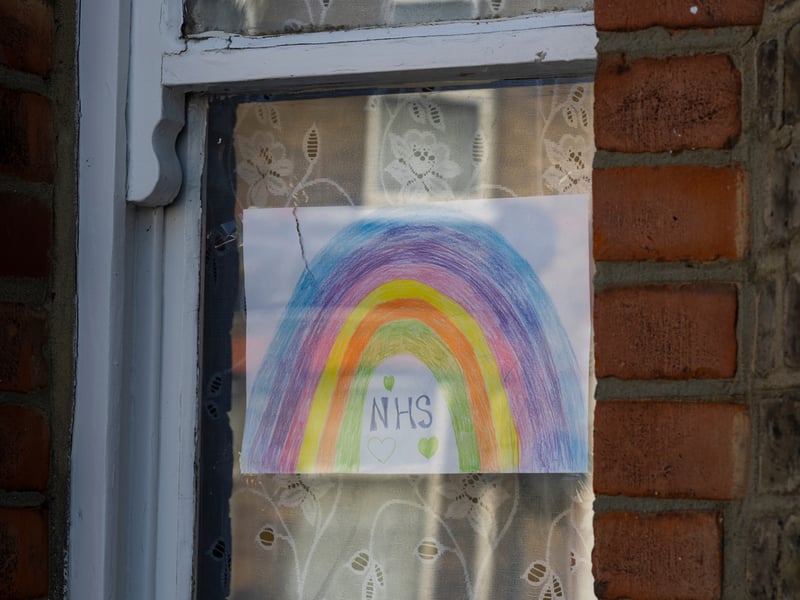FPG originally submitted an application, on behalf of an NHS doctor and their partner, who is ex-military, to Clydesdale bank.

Independent financial advice and mortgage broker business The Financial Planning Group (FPG) has worked with banks Clydesdale and Santander to ensure that an NHS doctor working on the front line on COVID-19 wards was still able to get a mortgage offer, despite social distancing rules.
FPG originally submitted an application, on behalf of an NHS doctor and their partner, who is ex-military and recently entered a new role in the insurance industry, to Clydesdale bank.
The bank then instructed and carried out a survey of the client’s property via e.surv Chartered Surveyors, but declined to lend the amount required, in part due to the potentially precarious nature of the partner’s new job, in light of the approaching coronavirus pandemic.
FPG took the application to Santander, which was willing to lend the required amount.
In the meantime, however, social distancing rules and the countrywide lockdown had come into effect, and no new surveys could be carried out; at the required loan-to-value ratio (LTV), which was above 60%, the survey needed to be done physically and could not be carried out online.
Steve Padgham, head of mortgages at FPG, said: “The biggest issue we are experiencing at the moment is that for people that do want to buy, do want to continue to get deals lined up so they can exchange and complete when life goes back to some kind of normality, if they’re borrowing over realistically 60%, with most lenders they can’t get a mortgage offer because the survey can’t be done.
“Anything that requires a physical valuation is just stuck at the moment.”
FPG worked with Clydesdale to authorise a retype for Santander via e.surv, which was then agreed.
“[Clydesdale was] out of pocket for that, so it’s quite a nice gesture,” Padgham added.
When Santander, via business development manager Serena Grewal, was informed of the circumstances surrounding this particular application, the bank agreed to use the re-type rather than insisting on conducting its own survey, and the mortgage offer was issued on Thursday 9 April 2020.
Padgham noted that this issue with physical valuations is a problem many will be facing.
For some companies, such as lifetime mortgage lender Just Retirement, the solution has been to ask for high quality digital photos, along with a description of the property.
“With digital photos, there’s enough data online to see what stuff sells for,” said Padgham.
However, this approach may well necessitate erring on the side of caution when it comes to valuing the property, to build in extra protection.
Therefore, this option is more likely to be taken when it comes to products, predominantly those around later life, that are likely to be affected long-term as vulnerable customers continue to be cautious even after lockdown ends.
For most, then, physical valuations will continue to be a necessity.
Padgham said: “The [main banks] I think are still going to want to come into the property.
“If you are going to lend somebody 85% or 90% of the value of that property, you’ve got to see it.”
There is space, however, for the Royal Institute of Chartered Surveyors (RICS) to introduce new rules that allow physical valuations to continue during isolation, under the right circumstances.
For example, Padgham suggested narrowing down the window during which a surveyor will come, making protective clothing a requirement, and asking residents to vacate the property during that window.
Moving is also not entirely off the cards, he added, but the fact remains that without specific circumstances, such as moving into an empty property without needing a removals company, many will not be able to do so until the lockdown is lifted.
Once the lockdown ends and restrictions are lifted, Padgham predicted that there will be a backlog of surveys and removals for the industry to get through, but that business will return to normal relatively quickly.
He said: “I think realistically life should go on pretty much as normal; there’s going to be a lot of knocked confidence because of the potential disruption to the economy, but hopefully that will be short-lived.
“The credit crunch was far worse, because banks simply didn’t have the money to lend.
“The banks have plenty of money, that’s not the issue, they’ve just got logistical challenges at the moment.
“Once social distancing is relaxed, the house moving market will go back to relative normality.”



